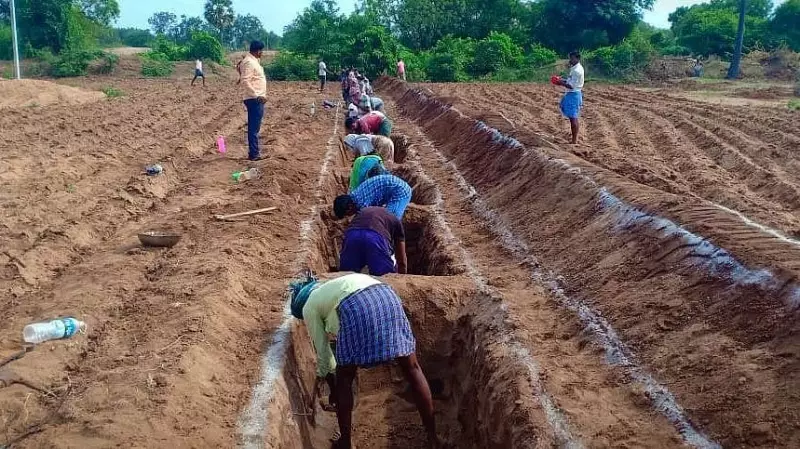
A shocking development in Andhra Pradesh's rural employment sector has left nearly 3.8 lakh workers staring at potential job losses due to stringent Aadhaar eKYC requirements under the Mahatma Gandhi National Rural Employment Guarantee Act (MGNREGA).
The Scale of the Crisis
According to recent data analysis, Andhra Pradesh has witnessed a dramatic decline in MGNREGA employment, with the state recording one of the lowest person-days of work among major states. The situation has become so critical that workers who have depended on this social security net for years now find themselves excluded from the system.
How Aadhaar eKYC is Creating Barriers
The core issue lies in the mandatory Aadhaar-based authentication system that workers must complete to access their MGNREGA benefits. This requirement has created multiple obstacles for rural workers:
- Technical challenges in remote areas with poor internet connectivity
- Authentication failures due to biometric mismatches
- Documentation issues among marginalized communities
- Limited access to Aadhaar enrollment centers in rural hinterlands
Impact on Rural Livelihoods
The exclusion from MGNREGA has had devastating consequences for rural households that rely on this employment guarantee during lean agricultural seasons. Many families now face economic uncertainty, with their primary safety net suddenly disappearing.
Broader Implications
This crisis raises serious questions about the implementation of digital identity systems in social welfare programs. While intended to reduce fraud and improve efficiency, the Aadhaar eKYC requirement appears to be excluding genuine beneficiaries who need these schemes the most.
The Way Forward
Experts suggest that immediate measures are needed to address this growing humanitarian concern. Possible solutions include creating alternative authentication mechanisms, extending deadlines for eKYC completion, and establishing special camps to help workers navigate the digital requirements.
The situation in Andhra Pradesh serves as a crucial case study for other states implementing similar digital authentication systems, highlighting the need for balanced approaches that don't compromise social security for technological efficiency.





